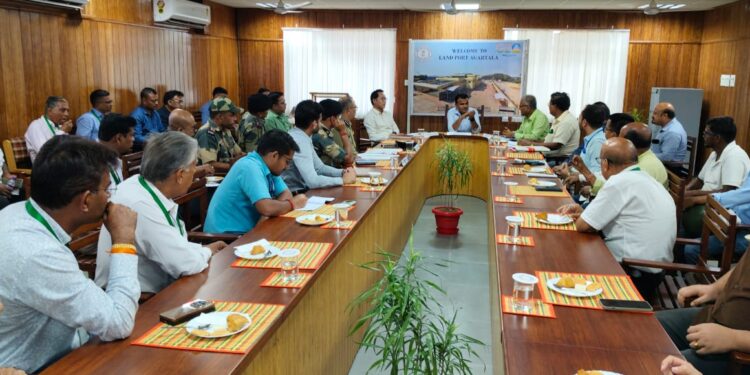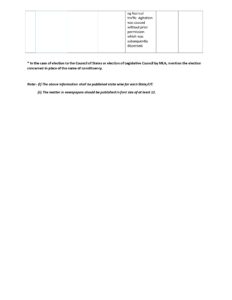Agartala, May 19: In response to the Government of India’s latest directive restricting imports of specific items from Bangladesh through land ports, a high-level meeting was held on Monday at the Integrated Check Post (ICP) in Agartala to assess the implications and streamline enforcement.
The meeting, chaired by Shailesh Kumar Yadav, Director of the Industries & Commerce Department of Tripura, brought together officials from Customs, BSF, the Land Port Authority of India, Immigration, and representatives of importers and exporters associations from across the state.
The discussion centered on operational challenges, procedural concerns, and strategies for effective implementation of the Directorate General of Foreign Trade (DGFT)’s order.
The DGFT, under the Ministry of Commerce, issued the order on Saturday, limiting the import of certain items from Bangladesh to only specific seaports—Nhava Sheva and Kolkata—effectively banning their entry through land ports.
The restricted items include ready-made garments, fruit-flavoured and carbonated drinks, processed food items such as snacks and confectionery, cotton and cotton waste, plastic goods, dyes, and wooden furniture.
Speaking to the media after the meeting, Director Shailesh Kumar Yadav clarified that the restrictions are limited to six categories of goods and do not apply to essential imports in Tripura like fish, stone chips, edible oil, and LPG.
He emphasized that the meeting aimed at ensuring strict adherence to the DGFT notification with cooperation from trade stakeholders.
Yadav also mentioned that while the business community initially had concerns, the authorities addressed their queries, and all parties agreed to comply with the new regulations.
Representatives from the import-export sector expressed their support for the move, viewing the restrictions as a temporary measure taken in national interest.
They stated that the decision is unlikely to significantly impact trade and are hopeful of a resolution in the near future.
Earlier, Bangladesh had banned the import of yarn from India by land route. India had also cancelled the trans-shipment facility for the export of goods from Bangladesh to third countries.








































